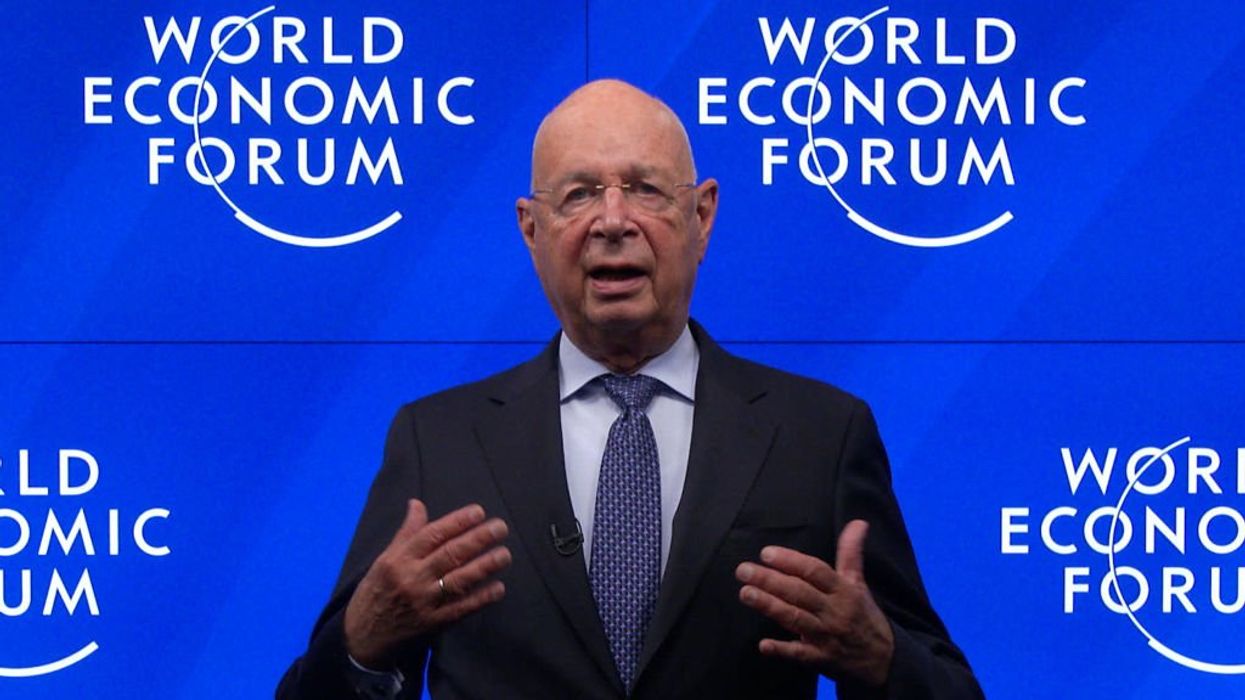
Photo by Getty Images/Getty Images for Greentech Festival

World Economic Forum Chairman Klaus Schwab envisioned a future without elections, predicting that voting will no longer be needed as artificial intelligence will be able to predict who voters would want in power.
Schwab spoke to Google co-founder Sergey Brin on stage at the WEF gathering and discussed the predicting powers of AI technology.
"Digital technologies mainly have an analytical power; now we go into a predictive power, and we have seen the first examples, and your company very much evolved into it," he told the Google founder. "The next step could be to go into a prescriptive mode, which means you do not even have to have elections any more because you can already predict."
Next, with the audience eerily silent, Schwab then asked if elections would even be necessary given that the outcomes would already be predicted.
"Afterwards you can say 'why do we need elections?' because we know what the result will be."
Brin then pontificated about eliminating world leaders — replaced by an AI decision-making apparatus — and praised Schwab for his "profound" thoughts.
Schwab later explained that a "crucial issue" that needs to be tackled would be how humanity is viewed.
"We need new concepts to define what humanity is and what's the purpose of our lives is," Schwab asked, referring to the automation of agriculture and daily tasks. The WEF chairman predicted most menial tasks would become a job for AI.
Despite his suggestions in the unearthed video, the globalist organization called AI-powered misinformation one of the primary threats to the global economy.
According to the WEF's "Global Risks Report 2024," misinformation and disinformation were defined as "persistent false information (deliberate or otherwise) widely spread through media networks, shifting public opinion in a significant way towards distrust in facts and authority."
While they acknowledged that the crackdown by authorities on so-called misinformation, particularly the AI-generated kind, poses a risk of "repression and erosion of rights," the WEF suggested that there is also "a risk that some governments will act too slowly, facing a trade-off between preventing misinformation and protecting free speech."
The WEF report also claimed that "known and newly emerging risks need preparation and mitigation. ... Localized strategies, breakthrough endeavours, collective actions and cross-border coordination all play a part in addressing these risks."
The group seemingly admitted in their conclusion that "leveraging investment and regulation" are "critical" tools for reducing the impact of "global risks," which of course include "disinformation" and climate-related issues.
Like Blaze News? Bypass the censors, sign up for our newsletters, and get stories like this direct to your inbox. Sign up here!
Andrew Chapados